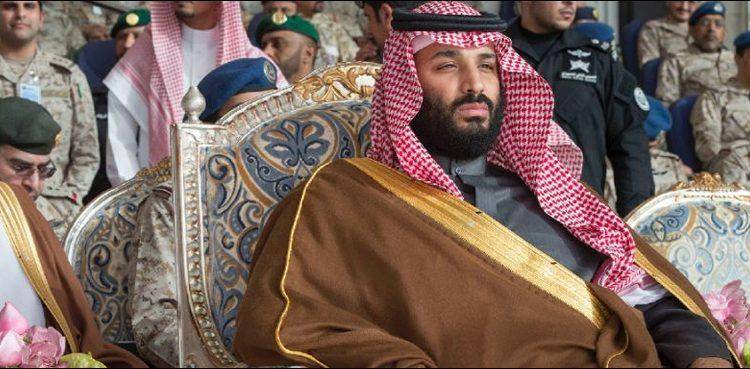Saudi Arabia foreign policy stirs international ire: Report
Shares

*RIYADH - Saudi Arabia has sought to tame critics with an aggressive foreign policy, but a deadly air raid in Yemen following an acrimonious spat with Canada will only amplify international pressure on the kingdom, analysts say.*
An air strike by the Saudi-led coalition hit a bus in rebel-held northern Yemen on Thursday, killing dozens of what aid groups said were school children, with the United States and United Nations both calling for an investigation.
The coalition insisted Huthi rebel combatants were aboard the bus, but international media have photographed dazed and bloodied children flooding into hospitals struggling to cope with a three-year conflict that the UN has dubbed the world’s worst humanitarian crisis.
“The war is becoming increasingly unpopular with the international community, including in the US Congress,” Sigurd Neubauer, a Middle East analyst in Washington, told AFP.
“(This) attack has unfortunately become the norm and not the exception.”
The coalition has repeatedly been accused of striking civilians in Yemen since it launched an intervention in 2015 to try to restore the internationally recognised government after the Iran-backed Shiite Huthi rebels drove it out of the capital Sanaa.
The coalition called Thursday’s strike a “legitimate military action” in response to a rebel missile attack on Saudi Arabia’s southern Jizan city a day earlier that resulted in the death of a Yemeni national.
But that did not quell the outpouring of global condemnation.
“NO EXCUSES ANYMORE!!” tweeted Geert Cappelaere, UNICEF’s regional director in the Middle East and North Africa.
“Does the world really need more innocent children’s lives to stop the cruel war on children in Yemen?”
Jan Egeland, head of the Norwegian Refugee Council, tweeted: “Grotesque, shameful, indignant. Blatant disregard for rules of war when bus carrying innocent school children is fair game for attack.” *‘Shutting the door to criticism’*
The bombing raid, part of an intervention that reflects Saudi Crown Prince Mohammed bin Salman’s increasingly assertive foreign policy, follows the kingdom’s diplomatic rupture with Canada earlier this week.
Saudi Arabia expelled Canada’s ambassador, recalled its own envoy and froze all new trade and investments after Ottawa publicly demanded the “immediate release” of rights campaigners jailed in the kingdom.
A furious Riyadh also moved to pull out thousands of Saudi students from Canadian universities, state airline Saudia suspended flights to Toronto, and the kingdom pledged to stop all medical treatment programmes in Canada.
The Saudi reaction could impinge on the kingdom’s efforts to attract badly needed foreign investment to fund its ambitious reform plan to pivot the economy away from oil, experts say.
The move illustrates how the oil-rich kingdom is unwilling to brook any criticism –- foreign or domestic -– under its young crown prince.
“The top leadership is not particularly concerned with Canada’s global influence,” said analysis firm Eurasia Group.
“Instead, it is interested in shutting the door to broader criticism, also from European countries, and on other issues in the future.”
But Canadian Prime Minister Justin Trudeau has refused to back down and asserted that his country will continue to speak out on human rights.
Saudi officials privately insist that respect for cultural sensitivities and closed-door diplomatic engagement is a more effective approach than public denunciations of the kingdom. - APP/AFP
